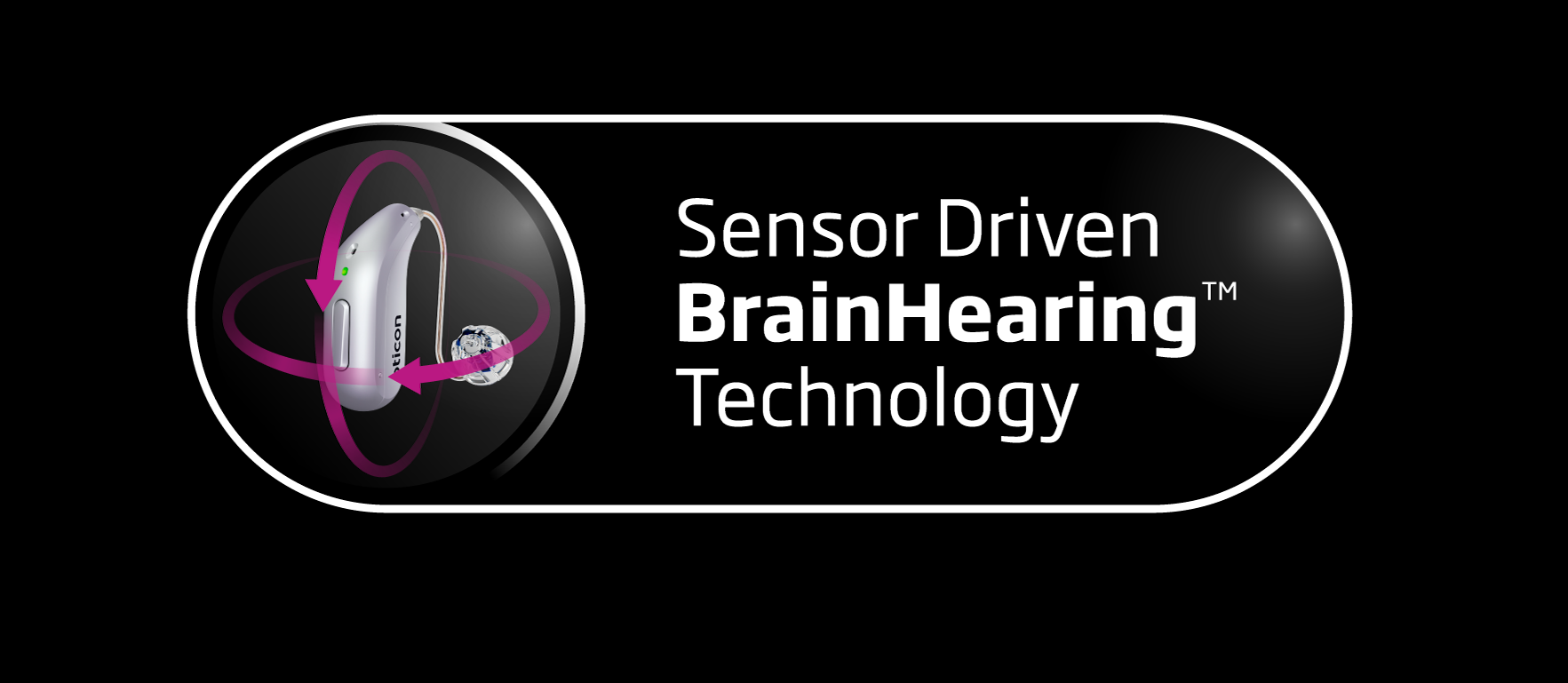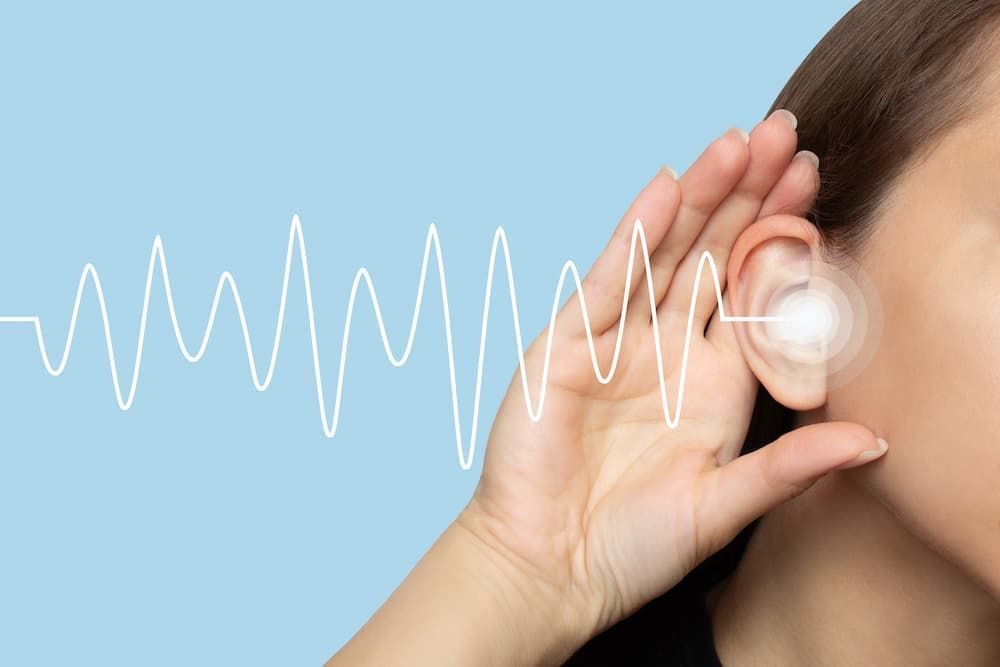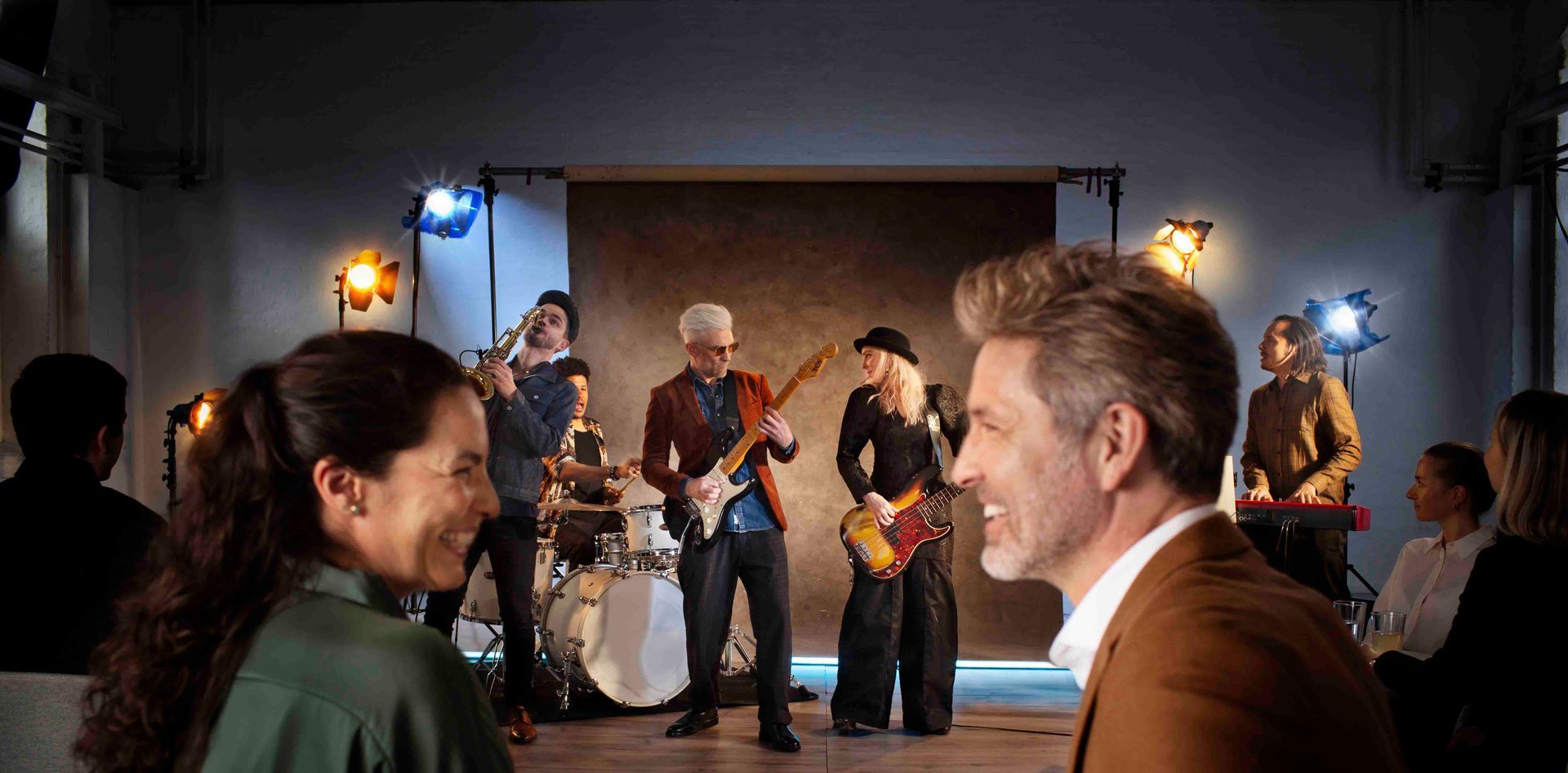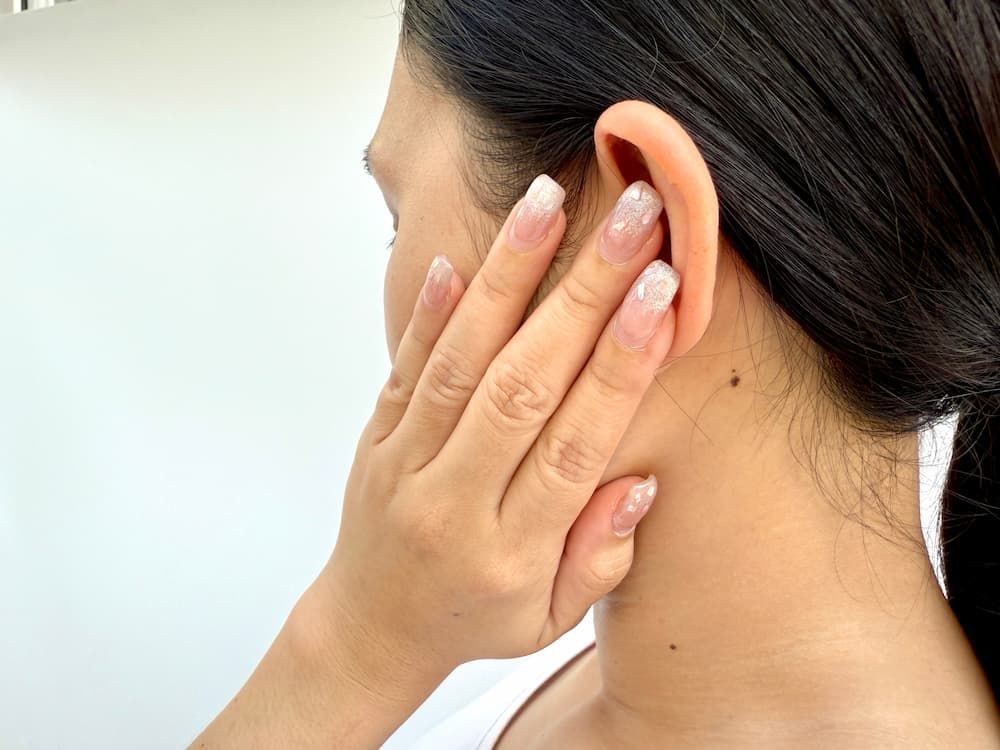Notch Therapy for Tinnitus

Notch Therapy for Tinnitus
 The Signia Notch Therapy hearing aid promises significant Tinnitus Relief, in addition to outstanding hearing aid amplification.
The Signia Notch Therapy hearing aid promises significant Tinnitus Relief, in addition to outstanding hearing aid amplification.
Tinnitus defined
Tinnitus is when you hear noises that are not caused by an outside source. There may be a constant or intermittent ringing, buzzing, throbbing sound in one or both ears or in the head. Clearly, this is a very annoying condition. It can occur due to many reasons including exposure to loud noise or an ear infection.
Tinnitus can be broadly grouped into two categories – tonal and non-tonal tinnitus. The former is more common where you experience a constant sound of a well-defined frequency, similar to whistling, ringing or buzzing. The non-tonal has a different pattern, with varied frequencies similar to humming, clicking and rumbling.
Tinnitus takes away the basic joy of listening, to anything that is enjoyable and enriching. Your quality of life can deteriorate and it is therefore important to seek help from a qualified audiologist.
The Signia Notch Therapy aims to solve just that. To quote the company website:
"As a leading manufacturer and innovator of hearing aids, our philosophy revolves around improving the quality of life for people with hearing difficulties, including tinnitus."
Three tinnitus therapies
The use of a hearing aid is one of the best ways to get relief from hearing conditions. For the first time, a hearing aid contains a built-in system called the Notch Therapy that is able to not only reduce the effects of tinnitus, but claim to completely remove it. The technology enables to amplify sounds and improve hearing and provide a range of solutions to alleviate the effects of tinnitus.
This is fantastic news!
To elaborate further, the Signia hearing aid provides three options for you to help with tinnitus. The first two options are based on the principle that a continuous pleasant and relaxing sound would override the rings and the buzz that you experience. Gradually, the brain ‘un-learns’ the tinnitus noise and the replaced gentle sound help you to relax and concentrate. The third option is the new technology where you can use a mobile app to teach your brain to ignore the repetitive ring.
Static noise tinnitus therapy signals – A continuous soft sound in the ear distracts you effectively from the tinnitus buzz, providing the much-needed relief. You are able to relax and enjoy life using this therapy. The hearing aid has a range of five preset signals to form a static noise, and the healthcare professional customizes the signal to your specific needs. This signal produces a sound that merges with the frequency of the tinnitus noise and quickly, you are able to hear, only the softer tune.
Ocean wave tinnitus therapy signals – A slight modification of the previous therapy, the aim of this version is to replicate the tranquil effect of the ocean sound waves to alleviate tinnitus. The experts will help you identify which one of four frequencies is the most soothing and favorable for you. Again, you will be happily distracted away from the annoying buzz in your ears and only hear the soothing ocean waves instead.
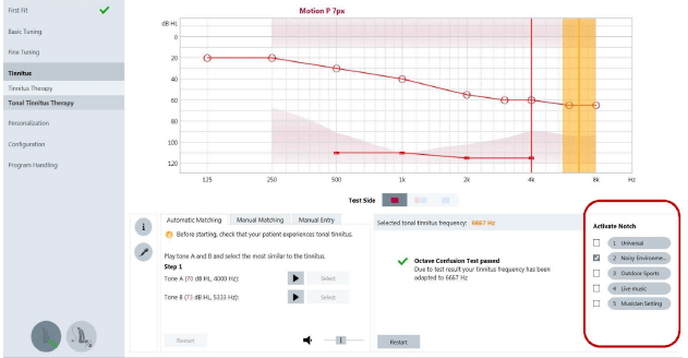
Signia Notch Therapy – If you suffer from tonal tinnitus, then the Notch Therapy is for you. This built-in therapy does not use another sound wave like the previous two. Using your hearing aid for a few weeks will potentially treat your tinnitus noticeably, without any external noise and obstruction.
This therapy is very unique. There is no external stimulation involved in this process. The Signia Notch Therapy hearing aid is all that you need, and for your audiologist to spend some time with you on a consultation to determine the exact frequency of your tonal tinnitus. Amplification of the hearing aids is done as normal to your specific hearing test, with the exception of your tinnitus frequency , which is then reduced so that it is integrated harmoniously into the overall background sound.
According to Signia, Notch therapy within their hearing aid models can reduce the effects of tinnitus and may even make it disappear completely. According to a recent study, 65 percent of patients experienced an improvement.
Continuous use of the aid for a few months will lead to relegating the tinnitus sounds into the background. The constant ring and buzz will gradually fade and the brain ‘learns’ to take no notice of tinnitus.
The Signia hearing aids are widely available in a range of small, discreet styles for every form of hearing loss. There is a model to meet your needs and it is very convenient to use. The technology can be utilized through an app on your mobile phone.
For more details on this amazing technology, see the Signia
website here.
If you suffer from tinnitus, please contact us at the Tinnitus & Hearing Center of Arizona and ask for your treatment options including the Signia Notch Therapy Hearing Aid. (480) 831-6159.
The information provided in this article is not meant to be medical advice and is for educational purposes only. If you would like to learn more about this and other hearing-related topics, feel free to contact Tinnitus & Hearing Center of Arizona by clicking here or by calling 480-831-6159.

